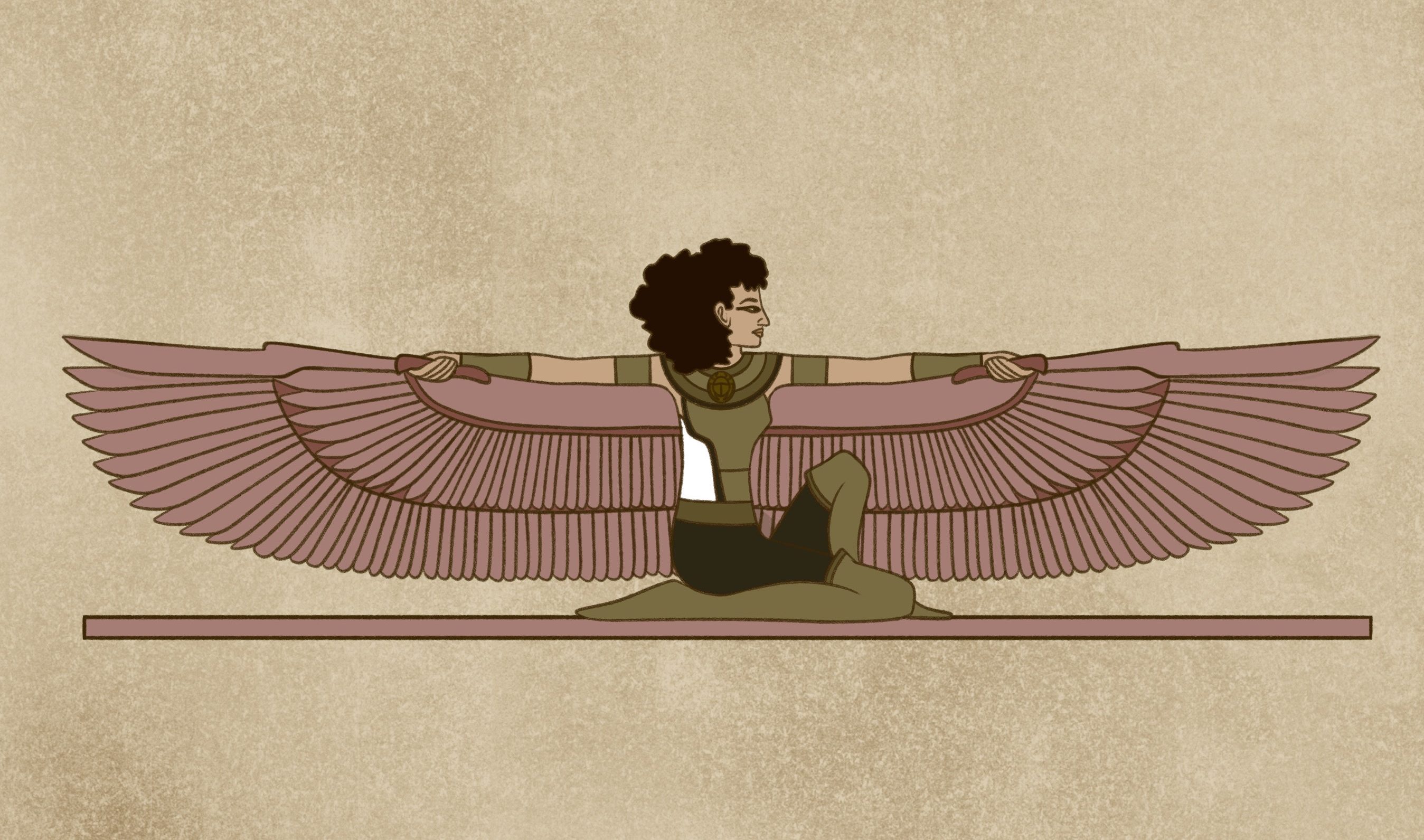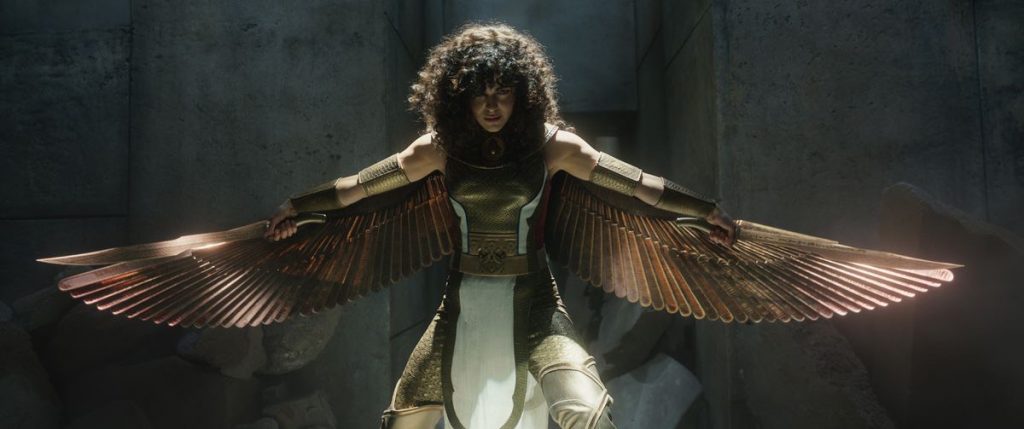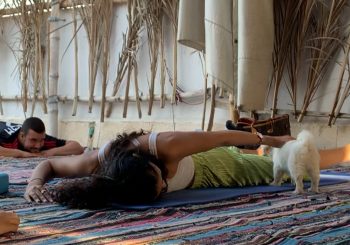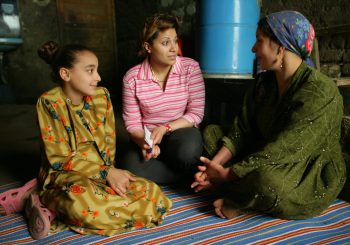The arrival of Disney’s ‘Moon Knight’ (2022) came with the realization that I am the “Egyptian friend” to a lot of people. I received a number of texts asking me for my opinion of Marvel’s newest release. It’s fair: they all know I jump at the opportunity to discuss Egyptian representation in media.
Was I excited when I first heard that Disney was developing a show about ‘Moon Knight’? No, but that’s because I had no idea who the superhero was. After doing some research and discovering the story integrates elements of ancient Egyptian mythology, however, I was cautiously enthusiastic. The portrayal of ancient Egyptian mythology in film has always piqued my interest, yet I am often left disappointed by Hollywood’s continuous whitewashing. Once I learned that Mohamed Diab would be the lead director, I allowed myself to really get excited.
I had just returned from Egypt when ‘Moon Knight’ started streaming; I held back from watching it until my “second-homesickness” had passed. Honestly, I was right to be worried about feeling nostalgic. By the third episode, when the story shifts from London to Cairo, we are thrust into a refreshingly accurate portrayal of contemporary Egypt. Cairo looks like the metropolis it is, instead of some offensive reimagining of Agrabah. It’s impressive how they made Budapest look like Cairo, considering they were unable to film there.
The remaining episodes, notably three and six, are filled with so many references to modern Egyptian culture: the mix of old world and new, the souq, the licorice, and tamarind juice vendors, Cairo Tower, the felucca boat ride on the Nile punctuated by the sound of ululations. It was a joy to watch. I practically ululated myself when I learned that, according to Diab, 90 percent of the Egyptian roles in ‘Moon Knight’ were assigned to Egyptian actors.
This is huge.
All too often in Hollywood, Egyptian roles go to actors of foreign descent (especially European) with little concern for historical accuracy and instead for more box office pull. Diab and writer-producer Sarah Goher worked to ensure that authentic Egyptian representation was at the forefront, a goal they accomplished by utilizing multiple Egyptian voices. Egyptian talent was woven into the fabric of ‘Moon Knight’: as part of the cast, the editors including Ahmed Hafez, the soundtrack which utilized songs from Egyptian artists as well as a musical score by composer Hesham Nazih, and the extras and crew members brought on set to help build the world of Marvel’s newest hero. It’s clear that a substantial part of Diab’s intended audience was Egyptians from Egypt and the diaspora.
The writers, Diab, and Goher created an opportunity for even more Egyptian representation by rewriting Spector’s love interest as an Egyptian character: Layla Abdallah El-Faouly, portrayed by May Calamawy.
There’s always a debate between sticking faithfully to the source material versus updating it to tell a more contemporary, and often more diverse, story. Despite upsetting some die-hard fans, there are real benefits to such changes and Layla is a perfect example. Layla quickly became my favorite character on the show. She’s sharp, witty, calls Spector out when necessary, and can hold her own in a fight. Not to mention her line regarding stolen relics that made me –and I’m sure a number of Egyptians who have needed to pay to see Egyptian artifacts in non-Egyptian museums – cheer: “I don’t steal. They’ve already been stolen. That’s what people forget.”
I was ready to throw confetti during the final episode when she agreed to become the Egyptian goddess Tarewet’s avatar, but it wasn’t until a later scene that I fully realized the significance of this.
After she saves a van of Egyptian women, a young girl looks at her with admiration and asks, “Are you an Egyptian superhero?” However, it should be noted that Arabic is a language with grammatical gender, so a more accurate translation is, “Are you a (female) Egyptian superhero?” to which Layla responds, “I am.”
Layla is a superhero, an Egyptian woman helping Egyptian women. What an unbelievably powerful moment. Her character stands tall as a shining middle finger to the persistent stereotypes of North African and Middle Eastern women in Western media.
However, to paraphrase Aiko Hilkinger, we can praise ‘Moon Knight’ while pointing out where it fell short. I really only have one concern regarding Egyptian representation, which is centered on the rooftop fight scene in the third episode between Spector and the three followers of Ammit.
Diab has critiqued Orientalism in past films and made it clear he wanted to avoid any such problematic stereotypes in ‘Moon Knight’, so I was genuinely surprised by this scene since, to me, the three guys Spector was fighting came off as examples of the Orientalist “barbaric Arab” trope. The way they were brandishing their knives felt excessive and ridiculous. Even Spector called them out on it commenting, “What, are we dancing? We fighting? What are we going to do?”
What sealed the deal for me was the zoomed-in shot of the one who looked like a pirate straight-up licking his knife in the middle of a fight. It wasn’t lost on me that the three villains were heavily accented, while Layla was not. They had darker skin, Layla was fair. Perhaps the whole fight was intended to be comical, but it made me check in with Egyptian friends to see if they shared my concerns – and they did.
What do I hope to see if we get a second season of ‘Moon Knight’, or really any Egyptian-based stories coming out of Hollywood? Simple: more Egyptian representation.
Diab has commented that he hopes to film parts of the potential second season in Egypt, which would be amazing. I am fairly certain they will continue their practice of hiring Egyptian talent for Egyptian roles, however, a point I do want to stress regarding hiring Egyptian actors, notably for lead or major roles, is that it’s important for them to be representative of the diversity of skin complexions in Egypt.
Colorism has resulted in lighter-skinned Egyptians dominating the entertainment field, both in Egyptian and Western media. In Egypt, this is slowly changing with the popularity of such actors as Asma Abulyazeid, Mahmoud Ellisy, Nancy Salah, and Mohammed Ramadan, but there is still a long way to go. If we look at recent examples from Western media, ‘In the Heights’ (2021) and ‘Crazy Rich Asians’ (2018) were both criticized for issues of colorism due to having largely people of color casts that lacked darker-skinned Latinx and East Asian representation. On the other hand, the second season of Netflix’s ‘Bridgerton’ (2022) was widely celebrated for casting two dark-skinned women of Indian heritage as leads (something even Bollywood is consistently critiqued for avoiding).
Authentic Egyptian representation in the media cannot and should not only celebrate Egyptians with lighter complexions.
The hope is that all types of Egyptian creatives get hired, earn recognition, and especially, get paid. Diab and Soher are largely responsible for ‘Moon Knight’ giving this very opportunity to many Egyptians, which has influenced a number of producers in the process.
Diab stated that Kevin Feige, Marvel Studios president, has expressed interest in working with some of these Egyptian creatives again. This is so, so important. Ultimately, the true power of Moon Knight is its position as a robust example of why Egyptian stories need to be told by multiple Egyptian voices, both in front of and behind the camera.
Any opinions and viewpoints expressed in this article are exclusively those of the author. To submit an opinion article, please email [email protected].








Comments (6)
[…] together through their work on Moon Knight were the speakers of the last panel, cultural consultant Rhonda Ragad and Egyptologist Ramy […]
[…] […]